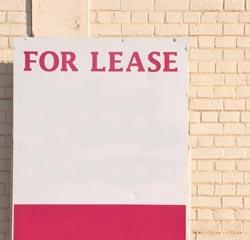South African commercial property owners not only have to deal with the Consumer Protection Act, the new Companies Act is another law to deal with.

The uptick in business rescue by commercial tenants makes it vital to know what happens to a commercial lease when the landlord goes into business rescue, he says.
According to Rael Levitt, chief executive officer of Auction Alliance, commercial property owners need to quickly brush up on Chapter 6 of the new Companies Act.
This is whereby a Business Rescue Practitioner can suspend a lease agreement.
The uptick in business rescue by commercial tenants makes it vital to know what happens to a commercial lease when the landlord goes into business rescue, he says.
He explains that unfortunately this adds strain to landlords and although business rescue is new and untested, South Africa may soon see tenants with heavy lease commitments going into business rescue in order to restructure their lease agreements.
The issue of insolvency and leases is not new to commercial owners and many landlords have lost tenants through companies going into liquidation.
However, he says Business Rescue may spawn a new industry of lease restructuring.
Steadily increasing business rescue coupled with the economic downturn, the current lack of credit and softness in consumer and business spending pose challenges for landlords of commercial tenants.
Corporate entities are succumbing to the pressure of creditors and the repercussions of excessive debt, and the number of corporate entities entering into business rescue is increasing with over 175 companies having already applied for Business Rescue.
The Business Rescue of tenants has consequences with respect to the ability of landlords to ensure payment of rent and recovery of arrears, get possession of defaulted leased premises and institute and continue legal proceedings in relation to any breaches of the lease by the insolvent tenants, says Levitt.
Business Rescue means proceedings to facilitate the rehabilitation of a company that is financially distressed by providing for the temporary supervision of the company and the management of its affairs, business and property and temporary moratorium on the rights of claimants against the company or in respect of property in its possession.
A Business Rescue Practitioner must develop and implement a plan to rescue the company by restructuring its affairs, business, property, debt and other liabilities, and equity in a manner that maximises the likelihood of the company continuing in existence on a solvent basis.
If it is not possible for the company to so continue in existence, this results in a better return for the company’s creditors or shareholders than would result from the immediate liquidation of the company.
A landlord is an affected party in a business rescue and can reject and cancel the company’s lease but distressed companies may use business rescue to temporarily suspend legal action, payments and more critically use the new legislation as a tool to renegotiate lease terms.

Landlords will have to assess the situation, and work with the tenant; but because landlords are being burdened with requests from tenants, coupled with their own cash flow and lender issues, the negotiations are never going to be easy, he adds.
“Even though rentals are only one of a long list of costs of doing business, commercial property tenants who get into financial trouble seem to always put rent relief near the top of the list of things to address.”
Commercial property managers and owners need to deal with the problem of a retail, industrial or office tenant who is struggling financially, advises Levitt.
“There is no right decision when it comes to the question of whether or not to even consider renegotiating a commercial lease.
Some landlords are of the basic belief that the business problems of the tenant are exclusively their own and that’s entirely defensible.
Others consider a wider range of aspects of the business relationship and seek to head to the negotiating table with a solid understanding of what is possible and what is prudent.
When a tenant goes into business rescue the landlord should request the business rescue plan that illustrates the plan for getting their business back to profitability.
If the plan includes a lowering of rent an easing of terms, landlords will have to make the difficult decision whether they are prepared to accept this or go through the cost and risk of finding new tenants.
If the business rescue fails, a company will go into final liquidation and this will be far more onerous for a landlord, says Levitt.
In the United Kingdom a growing sector of the market are leasing brokers who restructure existing lease agreements.
“We may start seeing this happening in South Africa and business rescue will fuel this industry”.
He says South Africa may start seeing an increase in commercial tenants looking to lower their occupancy costs through lease renegotiations, as changes in the economy have challenged companies to change their business operations and reflect on ways to cut costs.
"In a tight economy landlords may have to work with their tenants and allow them to pay reduced rent in order to avoid a vacancy.”
He says in order for a landlord to determine if a commercial tenant is viable, tenants must be transparent and relationships are important.
Landlords will have to assess the situation, and work with the tenant; but because landlords are being burdened with requests from tenants, coupled with their own cash flow and lender issues, the negotiations are never going to be easy, he adds.








